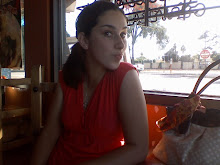An issue that has surpassed society's control is the enormous amount of youth falling into the criminal justice system. Why are there so many kids following the foot steps of adult criminals? In the book, "True Notebooks" by Mark Salzman, Salzman goes inside the Juvenile Hall of the Los Angeles county and sees first hand, why and how teenage boys keep falling into the juvenile system. While Juvenile Hall is suppose to serve the purpose of rehabilitating the youth, the teens must make an effort for any change to happen.
Many turn to gangs and the streets due to the lack of supervision and from living in a broken home. Single mothers that raise their children on their own sometimes work two to
three jobs to barely make ends meet. Without any family structure, kids look for it else where. Some turn straight to the streets, straight to the gang life where there is usually always someone there, a family. But this gang life has many consequences that these youth must endure such as ending up incarcerated or being killed. During one of Salzman's writing class in the Juvenile Hall, a student of his Francisco, had been a gang member and was shot because of it. Salzman asked him, "Did coming so close to dying make you feel differently about being in a gang?" (109). Francisco answered back, "Naw, not really. It was like all the feelings I had, they got turned into just one. Anger!"(109) So many youth are in a gangs putting their life in jeopardy just to be accepted, Yet many know they can be locked up for 25 years to life, but it still does not matter to them.
Salzman got first hand experience on how Juvenile Hall can destroy the minds of ambitious and driven teens. The fact that he volunteers and gives the boys hope makes all the difference in the world to them. While I was conducting an interview with Avila (a member of my church, Communidad Christana de San Jose) I got to understand how even grown men in prison also have no hope and just need to feel like someone cares about them. Avila conducts a bible study twice a week for an hour and a half at San Jose Jail and usually mentions how many of them feel rejected, forgotten, and disbanded from society. The fact that Avila is listing to them, and shares his experiences, can create hope for a future that was not previously there. Avila also helps create a spiritual freedom that he has found through a relationship with God. Salzman's boys feel the same way, "Society can take away our physical freedom, but we still got spiritual freedom. Nobody can take that away from us! You could be in the worst place in the world, but still get as much freedom as you want, as long as you got God in your heart." (200) Volunteers like Salzman and Avila give hope, whether it's just mental or spiritual.
Since society views these troubled teens with a narrow mind, guards such as Mr. Sills at the Los Angeles Juvenile Hall saw passed those stereotypes. One inmate in particular named Kevin, was Mr. Sills favorite. Mr. Sills acted more as a father figure rather than just a guard towards Kevin and some of the other boys. He sometimes barbecued for them, which was against the rules. Kevin got trialed early, some say because Kevin was Sills favorite and that was the only way to hurt Sills, considering he can not be fired for that. Without taking into consideration the programs Kevin was participating in; Narcotics Anonymous group, theater group, writing class, behavior modification courses, college courses, and Bible study classes, the court judges, "...young people without knowing the whole story." (197) With all the information and letters that supporters and Mr.Sills wrote, the Judge was not moved in anyway. Kevin got sentenced twenty six years and eight months for second degree murder, fifteen years to life for each attempted murder, plus ten years for the use of a gun. This young boy gets to spend his whole life in prison for one mistake, although he is striving to better his lifestyle, the judge shuts him down and can not see passed what is written on paper.
With so many teens going to Juvenile Hall and then to prison, this shows you how little our justice system is attempting to better their lives. Prosecuting youth as adults needs more consideration. I strongly believe that anyone may change with the right help, all they need is a little push. Salzman discovered that, while volunteering and through his teaching with his writing class. Just as Avila did with sharing his personal experiences and through his mentoring. Many of these young boys had potential to better themselves, but the court will not always see it that way. It is sad to see the life of our youth going to waste, but were the only ones to be blame if we don't take the necessary actions to help them.
skip to main |
skip to sidebar
Ari's Blog [Juvenile Hall]
